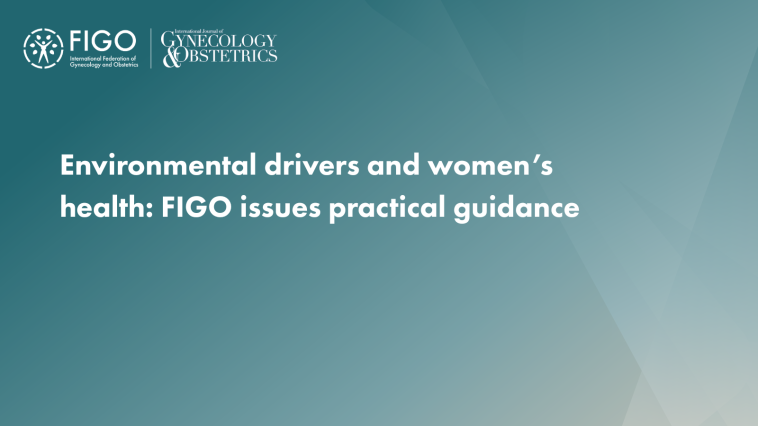Environmental drivers and women’s health: FIGO issues practical guidance

FIGO’s Committee on Climate Change and Toxic Environmental Exposures has released two new Committee opinion papers in the International Journal of Gynecology & Obstetrics (IJGO), exploring the growing body of evidence linking environmental exposures to gynaecological and obstetric health conditions across the life course.
From adolescence, during pregnancy and through to the menopause, women are exposed to a wide range of environmental toxicants – including endocrine-disrupting chemicals (EDCs), air pollutants, heavy metals, pesticides and industrial compounds – that can affect hormonal function, ovarian reserve, disease risk and obstetric and early childhood outcomes.
The papers draw on evidence from systematic reviews and high-quality literature to show how these exposures can increase the risk of:
- Infertility
- Polycystic ovary syndrome (PCOS)
- Endometriosis
- Uterine fibroids
- Hormonally mediated cancers
- Menopause-related health concerns
- Preterm birth and low birth weight
- Preeclampsia
- Gestational diabetes
- Childhood conditions such as developmental delay, obesity and atopic disorders
The guidance also highlights the biological mechanisms involved, such as endocrine disruption, oxidative stress, inflammation and epigenetic changes, while addressing health disparities. Historically marginalised populations are often disproportionately exposed to harmful environmental factors, compounding existing inequities and increasing vulnerability to adverse reproductive outcomes.
The Committee opinion offers practical guidance for clinicians, encouraging obstetricians and gynaecologists to:
- Integrate environmental health into routine care through patient counselling and exposure screening.
- Advocate for systems-level change to reduce environmental risks and improve reproductive health equity.
- Take leadership roles in raising awareness and shaping policies around environmental determinants of reproductive health.
The publications reinforces FIGO’s commitment to addressing environmental health as a fundamental component of reproductive justice and equity worldwide.